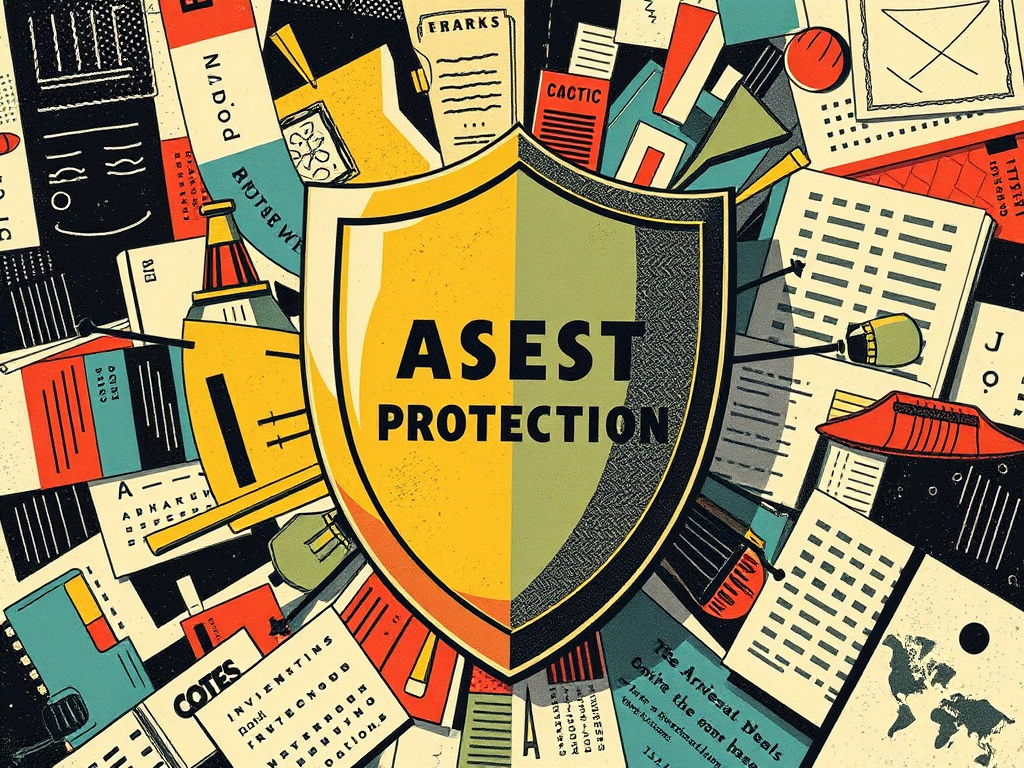
Asset Protection for Global Investors: Is Greece a Safe Jurisdiction?
Reading time: 15 minutes
Table of Contents
- Introduction
- Understanding Asset Protection
- Greece’s Economic Landscape
- Legal Framework for Asset Protection in Greece
- Investment Opportunities in Greece
- Comparing Greece to Other Jurisdictions
- Risks and Challenges
- Strategies for Effective Asset Protection in Greece
- Future Outlook
- Conclusion
- FAQs
1. Introduction
In an increasingly globalized world, high-net-worth individuals and savvy investors are constantly seeking safe havens for their assets. Greece, with its rich history, strategic location, and evolving economic landscape, has emerged as an intriguing option for asset protection. This comprehensive analysis delves into the intricacies of Greece’s financial ecosystem, legal framework, and investment climate to determine whether it truly stands as a safe jurisdiction for global investors looking to protect their wealth.
2. Understanding Asset Protection
Asset protection is a critical component of wealth management, involving legal strategies and financial planning techniques designed to safeguard one’s wealth from creditors, lawsuits, seizures, and other potential threats. Effective asset protection requires a deep understanding of international law, tax regulations, and financial instruments.
Key Components of Asset Protection:
- Legal Structures: Trusts, LLCs, and offshore entities
- Financial Instruments: Insurance policies, annuities, and protected retirement accounts
- Jurisdictional Diversification: Spreading assets across multiple countries
- Privacy Measures: Maintaining confidentiality and limiting public access to financial information
3. Greece’s Economic Landscape
To assess Greece’s viability as an asset protection jurisdiction, it’s crucial to understand its current economic situation and recent history. After facing severe economic challenges during the 2008 financial crisis and subsequent years, Greece has shown remarkable resilience and implemented significant reforms.
Economic Indicators:
- GDP Growth: 5.9% in 2021, projections indicate continued positive growth
- Unemployment Rate: Steadily decreasing, from a peak of 27.8% in 2013 to 12.8% in 2021
- Foreign Direct Investment: Increasing trend, with a 74% rise in 2021 compared to 2020
- Debt-to-GDP Ratio: While still high, it has been on a downward trajectory since 2020
These indicators suggest a stabilizing economy with improving investor confidence, crucial factors for those considering Greece for asset protection.
4. Legal Framework for Asset Protection in Greece
Greece’s legal system, based on civil law, offers several mechanisms for asset protection. Understanding these legal structures is essential for investors looking to safeguard their wealth within Greek jurisdiction.
Key Legal Instruments:
- Greek Trusts: While not as developed as in common law countries, Greece recognizes certain trust-like structures
- Limited Liability Companies (EPE): Offer personal asset protection for business owners
- Real Estate Investment: Strong property rights and potential for golden visa greece program
- Bank Secrecy Laws: Greece maintains relatively strict banking confidentiality, though subject to EU regulations
5. Investment Opportunities in Greece
Asset protection often goes hand-in-hand with investment strategies. Greece offers various investment opportunities that can serve dual purposes of wealth growth and protection.
Promising Sectors:
- Real Estate: The Greek property market has shown steady growth, with particular strength in luxury and tourism-related properties
- Tourism: A cornerstone of the Greek economy, offering various investment opportunities in hospitality and related services
- Renewable Energy: Greece is actively promoting green energy investments, with attractive incentives for solar and wind projects
- Technology: Emerging tech hubs in Athens and Thessaloniki are attracting international attention and investment
6. Comparing Greece to Other Jurisdictions
To truly assess Greece’s standing as an asset protection jurisdiction, it’s essential to compare it with other popular destinations for wealth protection.
Comparative Analysis:
- Switzerland: Known for strong privacy laws but facing increased pressure for transparency
- Cyprus: Offers similar Mediterranean appeal but with a more established reputation for offshore structures
- Singapore: Provides robust legal framework and economic stability but at a higher cost
- Cayman Islands: Traditional tax haven, but with increasing scrutiny from international regulators
Greece stands out for its combination of EU membership, improving economic indicators, and relatively lower costs compared to some traditional asset protection jurisdictions.
7. Risks and Challenges
While Greece presents numerous opportunities, it’s crucial to acknowledge the potential risks and challenges associated with using it as an asset protection jurisdiction.
Key Considerations:
- Political Stability: While improved, Greece’s political landscape can still experience volatility
- Regulatory Changes: EU-wide regulations may impact Greece’s asset protection landscape
- Economic Vulnerabilities: Despite improvements, Greece’s economy remains sensitive to global economic shifts
- Bureaucratic Hurdles: Navigating Greek bureaucracy can be challenging for foreign investors
8. Strategies for Effective Asset Protection in Greece
For investors considering Greece as a jurisdiction for asset protection, implementing a well-thought-out strategy is crucial.
Recommended Approaches:
- Diversification: Don’t put all eggs in one basket; spread investments across various asset classes and potentially other jurisdictions
- Legal Counsel: Engage experienced local legal and financial advisors familiar with Greek and international law
- Structured Investments: Utilize legal entities like EPEs for business investments to separate personal and business assets
- Real Estate Focus: Consider real estate investments, potentially qualifying for the Golden Visa program for added benefits
- Regular Review: Continuously monitor and adjust strategies in response to legal and economic changes
9. Future Outlook
The future of Greece as an asset protection jurisdiction looks promising, but it’s not without potential challenges. Several factors will shape its trajectory:
Key Trends to Watch:
- EU Integration: Further economic integration within the EU could impact Greece’s autonomy in financial regulations
- Digital Transformation: Greece’s push towards digitalization could streamline processes for foreign investors
- Global Economic Shifts: Greece’s position may strengthen as traditional havens face increased scrutiny
- Climate Initiatives: Greece’s focus on green energy could create new investment and protection opportunities
10. Conclusion
Greece stands at a unique crossroads, offering a blend of opportunities and challenges for global investors seeking asset protection. Its improving economic indicators, strategic location within the EU, and evolving legal framework make it an increasingly attractive option. However, like any jurisdiction, it requires careful consideration and strategic planning.
The key to successful asset protection in Greece lies in thorough due diligence, diversified strategies, and ongoing adaptation to changing economic and regulatory landscapes. While it may not be the perfect solution for every investor, Greece certainly merits serious consideration in the realm of global asset protection strategies.
As the global financial landscape continues to evolve, Greece’s role as a safe jurisdiction for asset protection is likely to grow, provided it continues on its current trajectory of economic stabilization and regulatory refinement. For investors willing to navigate its unique ecosystem, Greece could offer a valuable addition to their global asset protection portfolio.
FAQs
1. What makes Greece attractive for asset protection compared to traditional havens?
Greece offers a unique combination of EU membership, improving economic indicators, and relatively lower costs. Unlike some traditional havens facing increased scrutiny, Greece provides a balance of established legal frameworks and emerging opportunities, particularly in real estate and innovative sectors.
2. How does the Greek Golden Visa program factor into asset protection strategies?
The Golden Visa program can be a valuable tool for asset protection, offering residency rights in exchange for significant property investments. This not only provides a potential safe haven for physical presence but also allows for diversification into the Greek real estate market, which has shown resilience and growth potential.
3. Are there specific types of assets that are better protected under Greek law?
While Greek law offers protection for various asset types, real estate investments tend to have strong legal protections. Additionally, business assets held within properly structured Greek limited liability companies (EPEs) can offer significant protection from personal liabilities.
4. How does Greece’s banking secrecy compare to that of Switzerland or Luxembourg?
Greece’s banking secrecy laws are relatively strong but not as comprehensive as those traditionally associated with Switzerland or Luxembourg. However, as these traditional havens face increased pressure for transparency, Greece’s position as an EU member with still-robust privacy protections becomes more attractive.
5. What are the potential risks of using Greece for asset protection in the long term?
Long-term risks include potential changes in EU regulations affecting financial privacy, shifts in Greek political landscapes that could impact economic policies, and the ongoing need for economic reforms. Additionally, as Greece becomes more attractive for asset protection, it may face increased international scrutiny, potentially leading to regulatory changes.

Article reviewed by August Schmidt, Alternative Investments Expert | Diversifying Portfolios with Unique Assets, on March 12, 2025




